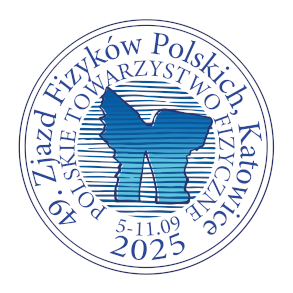Speaker
Description
Crystallization processes in aqueous solutions are influenced by multiple physicochemical parameters, including temperature, supersaturation, pH, and the presence of various additives. In recent years, increasing attention has been directed toward the role of bacteria in modulating crystal nucleation, growth, and aggregation in both aqueous and other environments. For instance, Bacillus subtilis has been shown [1] to affect calcium oxalate (CaOx) crystallization through mechanisms involving the secretion of extracellular polymeric substances (EPS).
This study investigates the influence of Proteus mirabilis on the crystallization of struvite (MgNH₄PO₄·6H₂O) in artificial urine. Struvite is a well-known component of infection-induced urinary stones, accounting for approximately 10–15% of all uroliths globally, with a rising incidence observed in high socio-demographic index (SDI) regions. The crystallization of struvite is strongly associated with the activity of urease-producing bacteria, predominantly Proteus mirabilis.
Struvite crystals formed in the presence of bacteria exhibit well-developed crystallographic faces, yet display a distinctly porous microstructure. This porosity is not limited to the crystal surface but extends into the crystal volume, representing a hallmark of bacterially influenced struvite. Additionally, bacterial activity alters the morphology and habit of the crystals, resulting in more regular forms compared to those precipitated in sterile conditions. Proteus mirabilis significantly impacts urine pH through urea hydrolysis mediated by the enzyme urease, further modulating the crystallization environment.
Infection urinary stones consist not only of highly crystalline struvite but also of poorly crystalline and amorphous phases, often incorporating bacterial cells within their structure. The aggregation of these phases, along with bacteria, is a critical mechanism underlying the formation of large calculi. Current findings highlight the role of bacterial macromolecules, particularly lipopolysaccharides (LPS), in promoting crystal aggregation.
Conclusion:
Proteus mirabilis actively mediates struvite crystallization and aggregation through its activity, secretion of LPS, and interactions with chemical constituents of urine. These bacteria can serve as nucleation centres and contribute to the recurrence of infection stone formation.
References
1. David N. Azulay, Malachi Fraenkel, and Liraz Chai; A Bacterial Biofilm Polysaccha-ride Affects the Morphology and Structure of Calcium Oxalate Crystals; Crystal Growth & Design 2023 23 (11), 7853-7862 https://doi.org/10.1021/acs.cgd.3c00657

